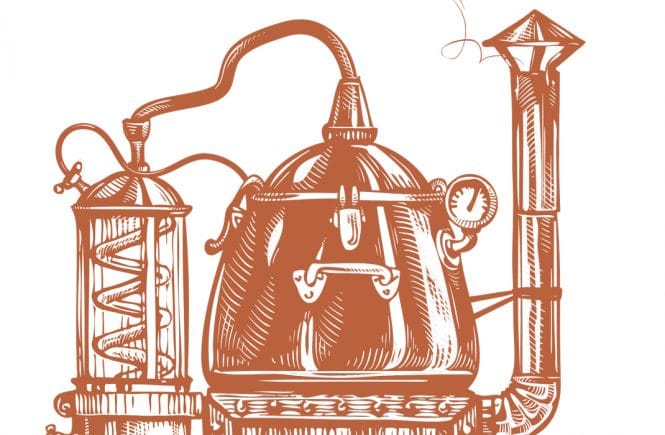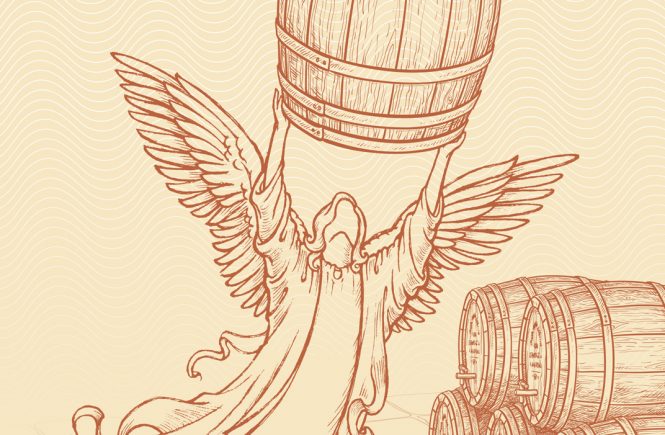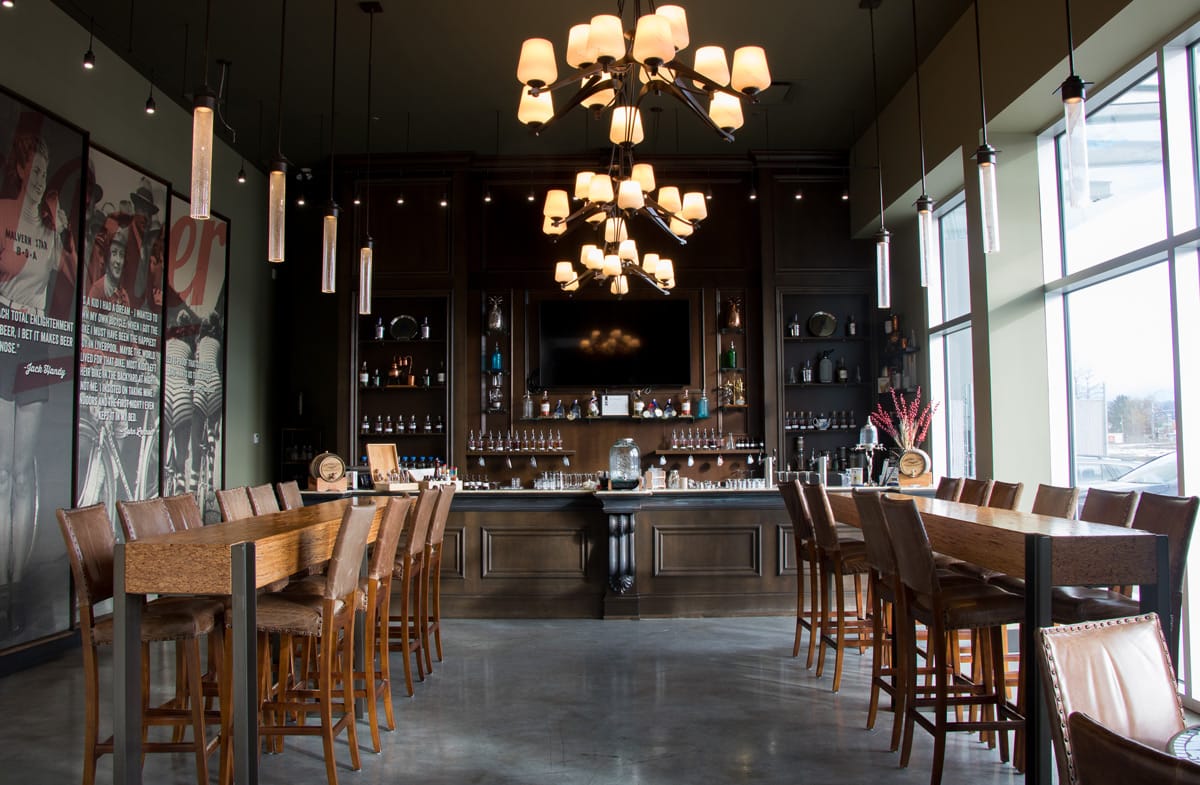Whisky in just two weeks? Get a taste of the “synthetically aged spirits” world
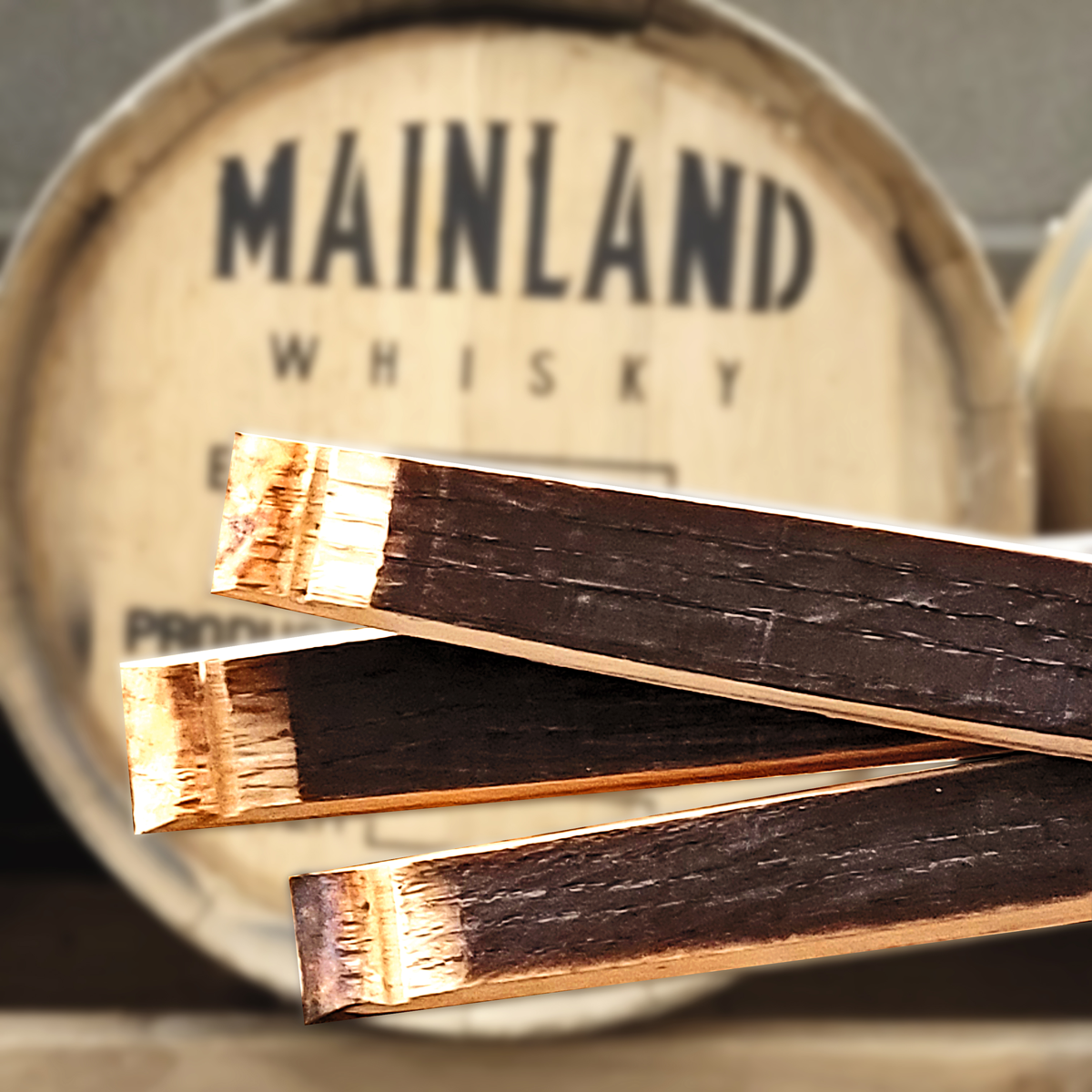
It’s amber in the glass, with aromas of toasted bread, fresh-cut wood, apple and pear. It’s flavours of butterscotch with clove and pepper spice. I’d blind-taste it as a young but promising Canadian whisky from a craft distillery, somewhere on its three-year journey to the glass.
“It’s two weeks old,” says Steve Watts, distiller and founder of South Surrey’s Mainland Whisky, of his Time Machine Hungarian Oak bottling. One of the craft renegades experimenting with accelerated maturation and “synthetic” aged whisky, the Texas-trained distiller says, “There are so many people who are traditionalists in this industry—I don’t need to be a traditionalist.” While his Time Machine spirits can’t be labeled “Canadian whisky,” Watts says, “I see this as a product not to replace barrel-aged whisky, but as something totally different.” (He eventually plans to release traditional wood-matured whiskies, too.)
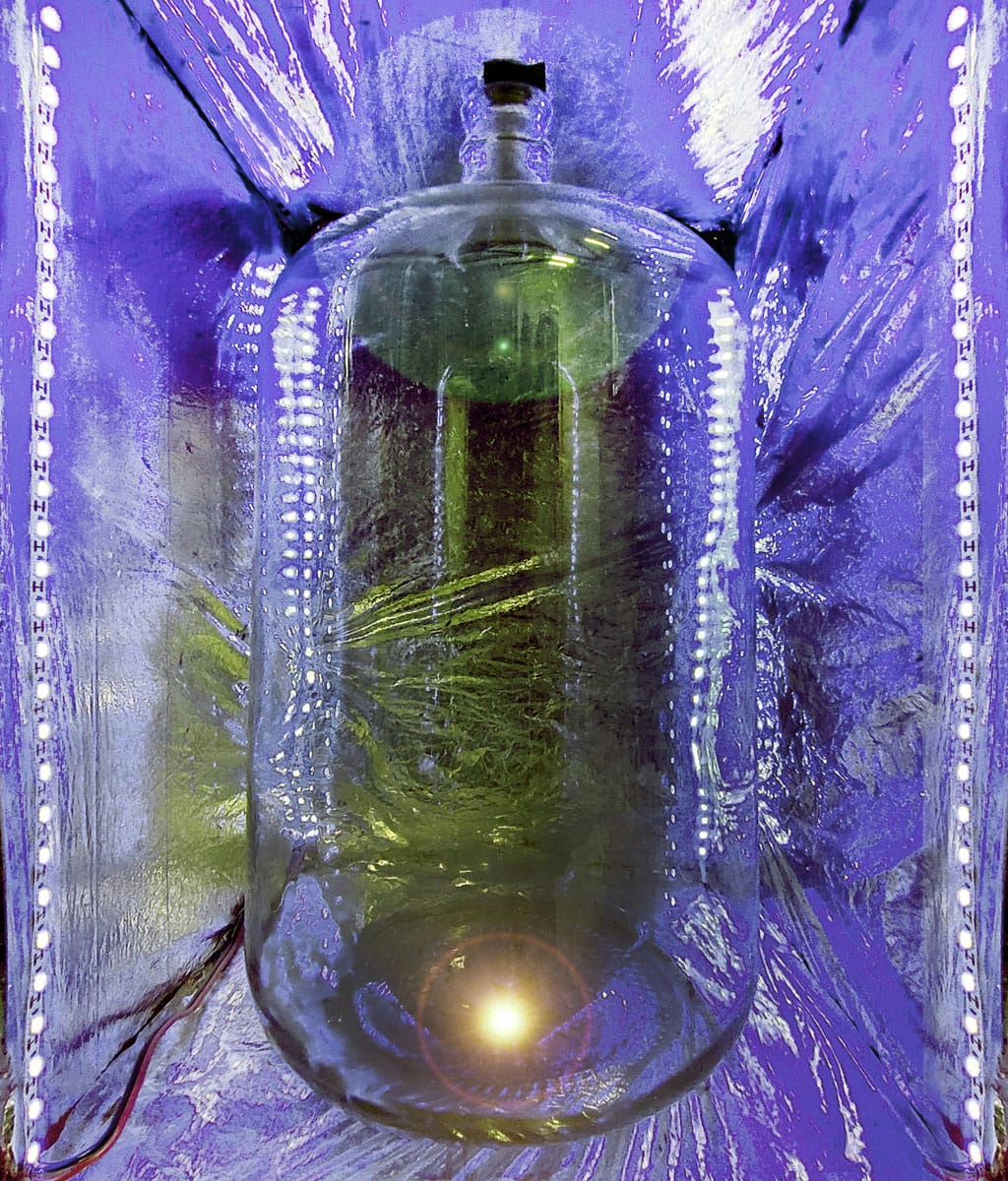
Watts invented a contraption using heat, light, sound and pressure to replicate the colour, aroma, flavour and mouthfeel of traditionally barrel-aged whisky. In the process, he avoids the costs of barrel storage and maintenance, evaporation (known as the Angel’s Share, and as high as 10 per cent in parts of B.C.) and the cash-flow jam of the three-year maturation requirement in Canada.
The process goes something like this: Mainland mashes, ferments and distills a new-make spirit from predominantly corn and some barley. “I think the mashing process is the most important part of whisky making,” says Watts, showing his respect for traditional distillery processes.
Then the timeline turns Tenet. He purchases Okanagan wine barrels and re-chars them, then puts cut-up barrel stave pieces into a carboy of new-make spirit. The carboy goes into his machine, where it’s exposed to subsonic frequencies and a reflective coating amplifies certain UV frequencies. It’s transferred to a sort of pressure cooker, and then rests—but not for long. The entire process takes less than two weeks.
“The light by itself did something, but when we mixed it up with sound it gave us a result that’s much more like aging in wood,” says Watts, who did “probably hundreds” of tests before creating something he wanted to drink himself. “Just an extra hour of heat or pressure could turn it into muck, but we’ve found a sweet spot where the tannins just kind of come out of the wood.”
Time Machine is currently made in 30-litre batches, while Watts is designing an efficient all-in-one machine and experimenting with wood and barrel types. You can find 375-millilitre bottles of the original Time Machine around town for about $25; currently only the distillery’s whisky club members have access to the version that was made using the same process but with dry, spicy Hungarian oak barrel staves instead of a wine cask. Whisky snobs might not buy into synthetic maturation, but Watts’ distillery visitors are “people who are interested in whisky and just want to see what’s out there, and get excited about it.”
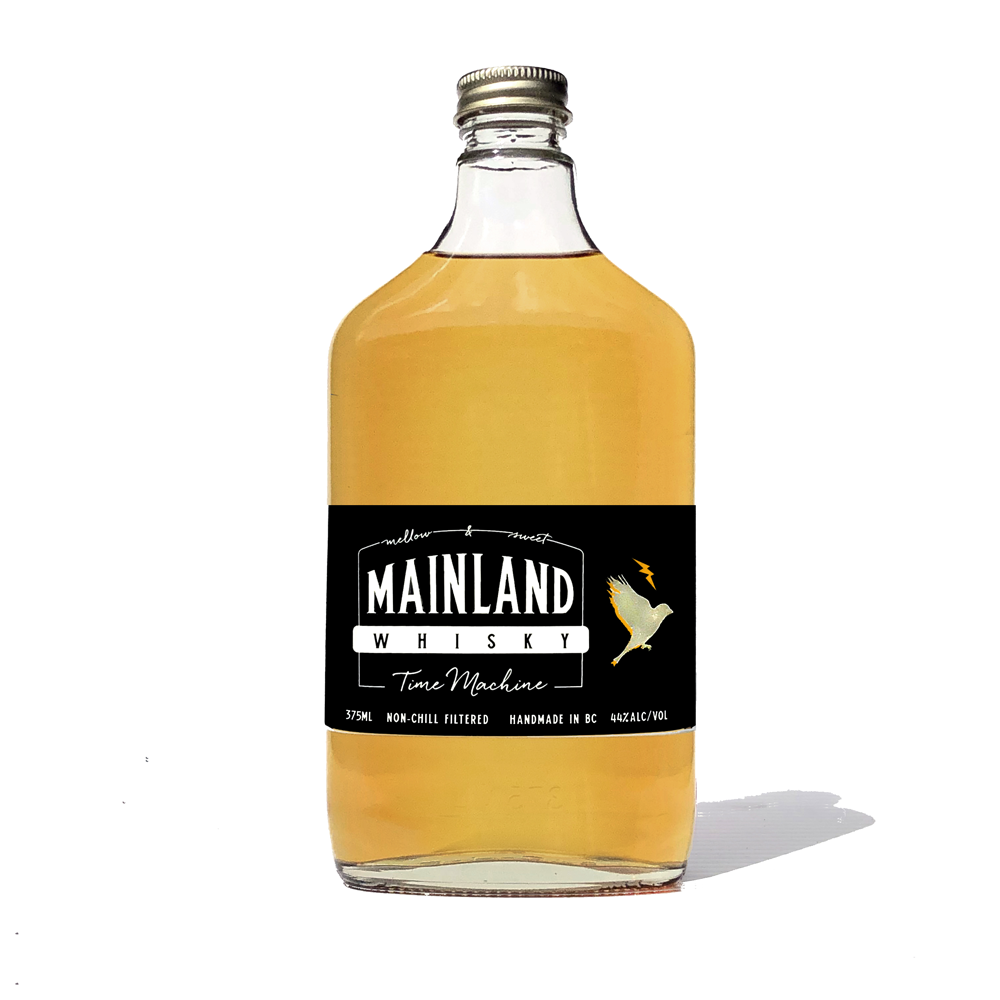
It’s bottled at a robust 88 proof, and though “it happens to taste really good at 44 per cent [alcohol by volume], there’s another reason for that,” says the former bartender and actor, his eyes sparkling mischievously above his mask. The fan of the Back to the Future Movies notes that the cinematic DeLorean time machine took off at 88 miles per hour.
Watts brings a mad-scientist and home-inventor vibe to his experiments. “This is a very homegrown, grassroots process. We’re not coming at it from a scientific background or anything. But I’m really excited to see what we can do with technology.”
Whisky before its time
Look for these brands that throw a wrench into the time machine with artificially aged spirits.
Cleveland Whiskey
Unconventional woods and a pressurized tank make whiskey in less than six months.
Endless West (San Francisco)
Wine geeks produce “molecular spirits” like Glyph whiskey.
Lost Spirits (Los Angeles)
Uses Targeted Hyper Esterification Aging to produce cult whiskeys.
Terressentia (Charleston)
Eight hours of ultrasonic energy and oxidation creates whiskeys for brands like Winchester, Southshot and Copper Pony.
Edrington
The makers of prestige single malts like The Macallan and Highland Park use “compression finishing technology” to produce Relativity American Whiskey and Noble Oak bourbon.
—by Charlene Rooke


